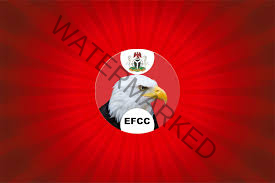

The Economic and Financial Crimes Commission (EFCC) has taken into custody Aisha Achimugu, a prominent businesswoman and socialite, at the Nnamdi Azikiwe International Airport in Abuja. The arrest was made just hours after her return from London, United Kingdom, on Tuesday morning. Achimugu, who is known to be an ally of Lagos State Governor, Babajide Sanwo-Olu, had been declared wanted by the EFCC in March over allegations of criminal conspiracy and money laundering.
According to sources, Achimugu was taken into custody around 5 am on Tuesday, sparking a controversy over the timing of the arrest. Her lawyer, Chief Chikaosolu Ojukwu (SAN), confirmed the arrest to journalists, stating that it contradicts a Federal High Court order issued just a day earlier. The court had directed Achimugu to honor the EFCC’s invitation on Tuesday, April 29, 2025, and appear before the court on Wednesday, April 30, 2025.
Ojukwu expressed outrage at the EFCC’s actions, describing the arrest as a breach of the court’s directive and her fundamental human rights. “Aisha Achimugu, who arrived voluntarily into the country from London, was arrested by the EFCC around 5 a.m. on Tuesday,” Ojukwu said. “In light of what transpired in court on Monday, my client returned based on the undertaking before the court to honor the EFCC’s invitation, but was arrested at the airport. She is a prisoner of conscience.”
The senior lawyer also revealed that Achimugu had commenced a hunger strike while in EFCC custody to protest her detention. However, a top EFCC official who spoke on condition of anonymity defended the agency’s decision to apprehend Achimugu, insisting that the arrest was lawful and necessary. “We had earlier declared her wanted and we can’t allow her to continue to walk freely,” the EFCC source said.
The EFCC had invited Achimugu for questioning over allegations of conspiracy, obtaining money by false pretense, money laundering, corruption, and possession of property reasonably suspected to have been acquired through unlawful means. According to the EFCC, Achimugu had initially honored the Commission’s invitation on February 12, 2024, during which she made a written statement and was subsequently granted administrative bail through her lawyer and surety. However, she allegedly failed to report back as agreed, choosing instead to file a fundamental rights enforcement suit against the Commission.
The arrest of Achimugu has sparked a heated debate over the EFCC’s powers and the rule of law. While the EFCC claims that the arrest was lawful, Achimugu’s lawyer argues that it was a breach of the court’s directive and her client’s fundamental human rights. The case has raised questions about the balance of power between the EFCC and the judiciary, and the extent to which the agency can exercise its powers in investigating and prosecuting suspects.

As the case unfolds, it remains to be seen how the EFCC will respond to the court’s directive and whether Achimugu will be granted bail. The outcome of this case will have significant implications for the rule of law and the rights of suspects in Nigeria.
In a related development, the EFCC’s actions have been defended by some as a necessary measure to ensure that suspects do not evade investigation and prosecution. However, others have criticized the agency’s approach, arguing that it undermines the rule of law and the rights of suspects.
The case of Aisha Achimugu highlights the complexities and challenges of investigating and prosecuting financial crimes in Nigeria. As the EFCC continues to pursue its mandate to combat corruption and financial crimes, it must do so in a manner that respects the rule of law and the rights of suspects.
The EFCC’s decision to arrest Achimugu despite the court’s directive has raised questions about the agency’s commitment to upholding the rule of law. The EFCC must ensure that its actions are guided by the principles of fairness, transparency, and accountability.
As the investigation continues, it is essential to ensure that the rights of all parties involved are respected and protected. The EFCC must conduct its investigation in a manner that is fair, transparent, and respectful of the law.
The case of Aisha Achimugu serves as a reminder of the importance of upholding the rule of law and protecting the rights of suspects in Nigeria. The outcome of this case will have far-reaching implications for the country’s fight against corruption and financial crimes.
In the final analysis, the EFCC’s actions will be closely watched by the public, and it is crucial that the agency maintains transparency and accountability throughout the investigation. The case will likely continue to generate public interest and scrutiny in the days ahead.










